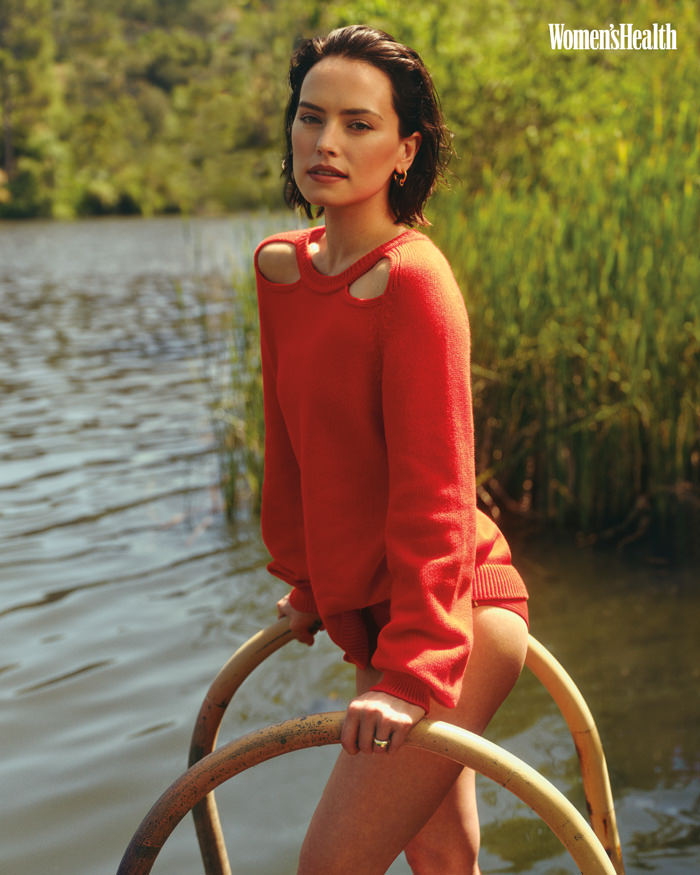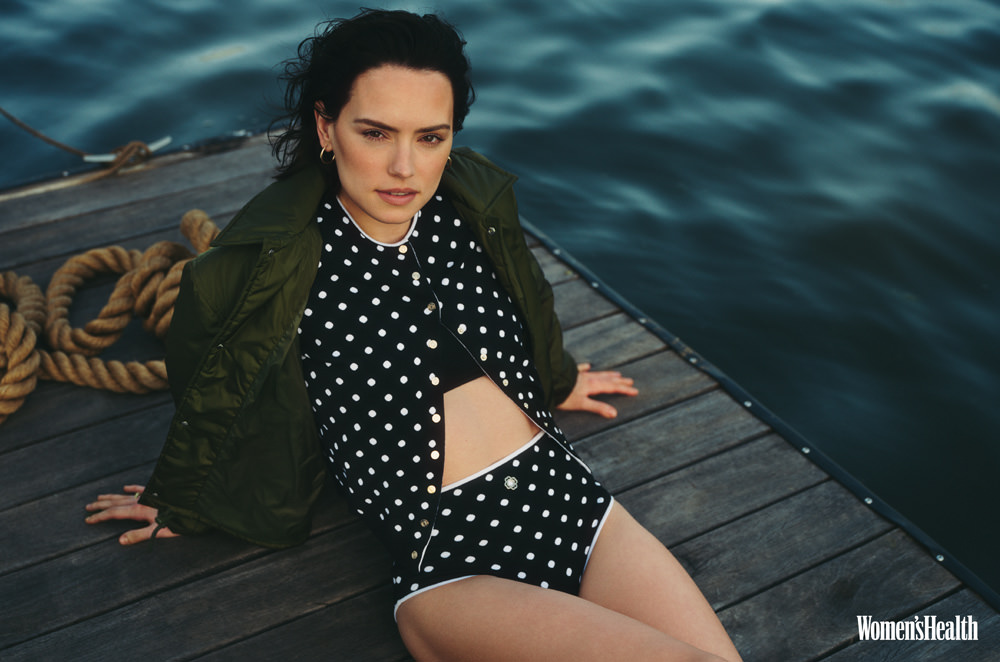
For Daisy Ridley, embodying the role of swimmer Trudy Ederle—the first woman to swim the English Channel—in YOUNG WOMAN AND THE SEA was intense, physically and mentally. Today is the 98th anniversary of that historic swim, a feat that Daisy learned about intimately. But Daisy is no stranger to doing hard things. Diagnosed with endometriosis in her teens, and polycystic ovaries in her 20s, she’s been candid about her health. But now she’s dealing with another curveball: Graves’ disease, an autoimmune disorder that involves overactivity of the thyroid. The diagnosis has led Daisy to a renewed sense of body awareness and reminded her that not everything can be anticipated. Now, featured on the cover of the September/October issue of WOMEN’S HEALTH, Daisy shares how she learned to slow down and listen to her body during one of the most intense phases of her life.


On her range of acting projects, ranging from a troubled housewife to a socially awkward office worker to a strong and stubborn Jedi: “It’s all make-believe. It’s about turning up and being very present and being very open and available, but also submitting to someone else’s vision. It’s about being open to what other people believe, even if you come up with ideas of what that is.”
On playing Gertrude “Trudy” Ederle in Young Woman and the Sea: “The first time I swam for the role, we were in a 20-meter pool, and I swam halfway, then started panicking. I was like, I can’t do it. I actually can’t do it. It was a classic lied-on-the-CV moment of, What the f*ck have I done?”
On emerging from the water after being told to swim for as long as she could, filming on her last day in the cold and current of the Black Sea: “I remember thinking, I can’t do this anymore. The buildup to it was worse than the thing. Once you’re [swimming], you’re like, Oh, I’m fine. And then after the fact, I was like, How did I actually do that?”
On being diagnosed with Graves’ disease in September 2023, following the filming of Magpie, a psychological thriller in which she plays Anette, a wife and mother dealing with her rocky relationship: “I thought, Well, I’ve just played a really stressful role; presumably that’s why I feel poorly. It was funny, I was like, ‘Oh, I just thought I was annoyed at the world,’ but turns out everything is functioning so quickly, you can’t chill out.”
On working to pay attention to her body, slow down, and rest when she needs to, and integrating things like infrared saunas, cryotherapy, massages, and acupuncture into her routine: “I’ve always been health conscious, and now I’m trying to be more well-being conscious. I do a fair amount of the holistic stuff, but I also understand that it is a privilege to be able to do those things.”
On learning to continuously listen to her body, a thing she knows many women are not inclined to do: “We all read the stats about women being undiagnosed or underdiagnosed and sort of coming to terms with saying, ‘I really, actually don’t feel good’ and not going, ‘I’m fine, I’m fine, I’m fine, I’m fine.’ It’s just normalized to not feel good.”
On not being bitter or overwhelmed by the health issues she’s dealt with: “In the grand scheme of things, it’s much less severe than what a lot of people go through. Even if you can deal with it, you shouldn’t have to. If there’s a problem, you shouldn’t have to just [suffer through it].”
The September/October issue of Women’s Health hits newsstands nationwide on August 20.
[Photo Credit: Jonny Marlow for Women’s Health Magazine]
BORDERLANDS Los Angeles Fan Event Red Carpet Rundown Next Post:
Blake Lively and Isabela Ferrer at the IT ENDS WITH US London Photo Call
Please review our Community Guidelines before posting a comment. Thank you!



